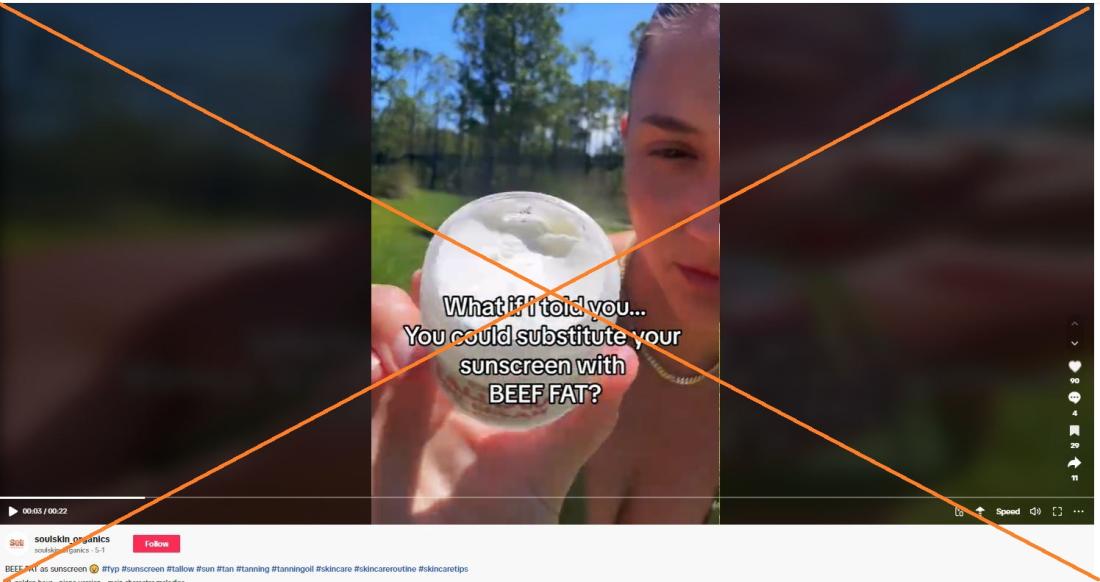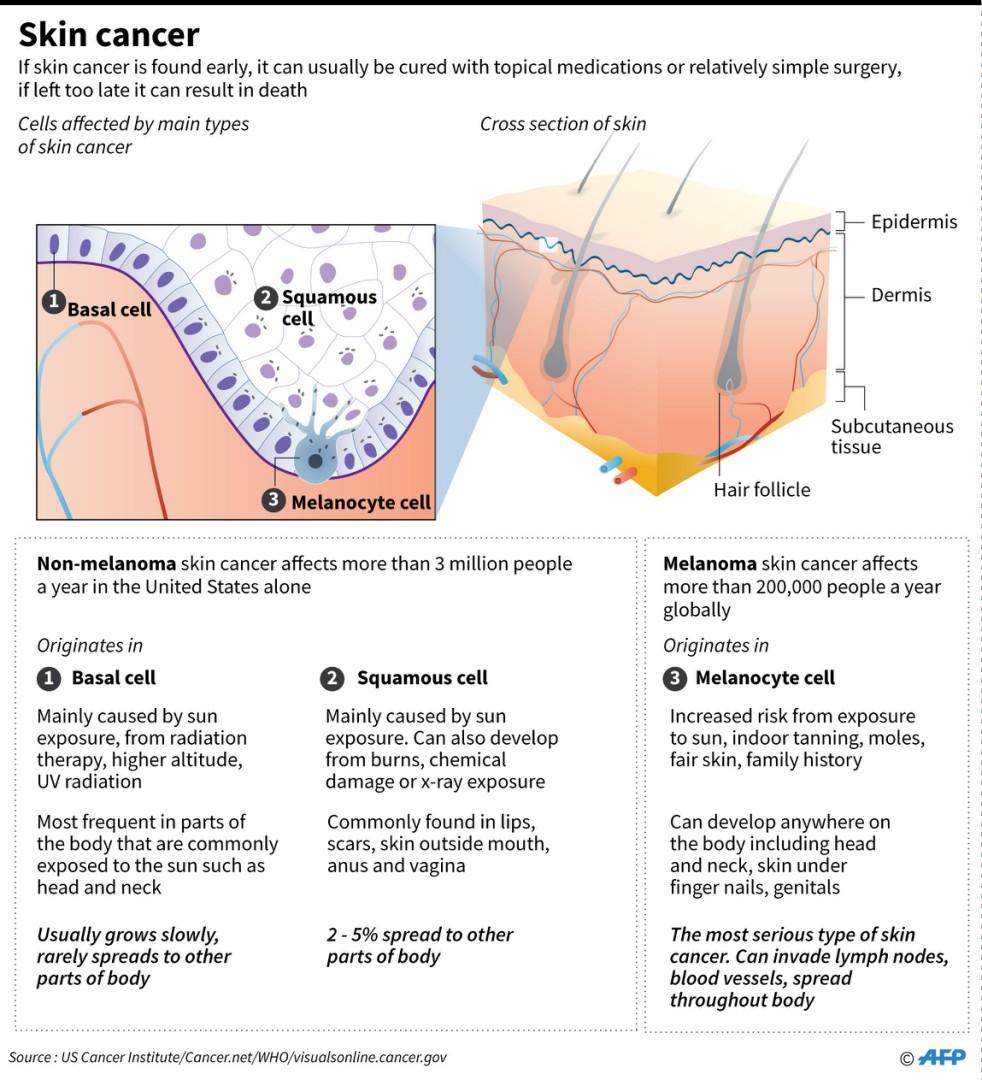
Homemade sunscreen is potentially harmful, experts say
"We ran out of sunscreen so I asked Lucky to make me some," says model and internet personality Nara Smith in a June 25, 2024 TikTok video with some 20 million views.
In the clip, Smith narrates recipes using coconut, beeswax, shea butter, cocoa butter, and zinc oxide, a mineral in some commercial sun products.
In another post on Instagram, an influencer who goes by Gubba Homestead tells her more than one million followers that she made her own sun protection balm from beef fat.
"Tallow is what our ancestors used," she says, adding that "this is better than toxic sunscreens."
Other TikTok users have shared their own cream formulas, using ingredients such as coconut oil, olive oil and "non-nano zinc oxide" that they tout as "natural and nontoxic." Some claim the formulations have a similar sun protection factor (SPF) as commercial products.


The posts come amid a flood of misinformation linking sunscreen to skin cancer, as well as false claims that protection is unnecessary.
A 2024 poll from the Orlando Health Cancer Institute found about one in seven adults under 35 think daily sunscreen use is more harmful than direct sun exposure. A separate survey shows a slight decline in sunscreen use since 2022.
Adam Friedman, chair of dermatology at The George Washington University School of Medicine (archived here), said using homemade sun protection is "scary" from a health viewpoint.
"At a minimum, it won't protect you from the sun and you'll get burned. And at a maximum, there are things in there that could be dangerous," Friedman said July 12, 2024.
He noted that sunscreens sold in the United States are regulated as over-the-counter drugs, meaning they "have to undergo rigorous testing to be able to make claims" about sun protection.
"There's no way you're making this in your basement," Friedman said.
'Untested formula'
The American Academy of Dermatology Association warns that "most homemade sunscreens lack effective sun protection, leaving users vulnerable to sunburn, premature skin aging and skin cancer, the most common cancer in the US" (archived here).
The organization says on its website that "homemade sunscreens do not go through the rigorous testing required of commercial sunscreens by the US Food and Drug Administration (FDA), which means that their sun protection factor (SPF), water resistance and shelf-life cannot be guaranteed."
Megan Couvillion, a dermatologist in the US state of Texas (archived here), agreed that homemade formulations offer no assurances of protection.
"Commercially made sunscreens, because they are regulated, are tested to prove that they have the SPF indicated, that they are water resistant and for how long, and are stable in the packaging provided," she said in a July 10 email.
"I would avoid any homemade sunscreen formula (even those that contain zinc oxide) because you're missing all of this. You cannot rely on an untested formula to protect you sufficiently. "
She added that beef tallow "has no UV blocking ability," although it may be useful as a moisturizer.
Daniel Bennett, a University of Wisconsin professor of medicine specializing in dermatopathology (archived here), said untested homemade sun protection products may contain allergens or other ingredients that could cause harm.
"There's a whole host of plant allergens" that may require medical attention, "so the more things that people are putting into a homemade remedy and then applying to the skin, I think the more they're at risk of unwanted side effects," Bennett said July 12.
FDA misinterpreted
Some social media users point to a 2020 FDA acknowledgment that further study is needed for some sunscreen ingredients that may be absorbed in the skin (archived here).
However, medical experts say the posts take these comments out of context -- and that there is no scientific evidence of harm from approved sunscreens.
"We have decades of widespread use (of sunscreen) by large segments of our population for long periods of time, and there has never been any indication or signal that they are associated with any negative health outcome," Bennett said. "Whereas there is evidence that they protect from the development of skin cancer, which is a very obvious negative health outcome."

Friedman agreed that sunscreen ingredients do not correlate with any disease while "unrestricted sun exposure" is linked to various forms of skin cancer.
Experts say sunscreens using chemical or mineral barriers such as zinc oxide effectively block radiation, but Friedman said there is no evidence to support claims that "non-nano zinc oxide" is better than conventional formulations.
He added that research shows shrinking particles to the "nanoscale" makes them easier to incorporate into a cream that disappears in the skin, while non-nano formulations will leave a visible residue.
"Nanoscale minerals are easier to use, they are absolutely safe," Friedman said. "They actually make sunscreen use adherence much better."
More of AFP's coverage of health misinformation is available here.
This article was corrected in the 15th paragraph to note that Megan Couvillion practices dermatology in the US state of Texas, not Louisiana.July 18, 2024 This article was corrected in the 15th paragraph to note that Megan Couvillion practices dermatology in the US state of Texas, not Louisiana.
Copyright © AFP 2017-2026. Any commercial use of this content requires a subscription. Click here to find out more.
Is there content that you would like AFP to fact-check? Get in touch.
Contact us
